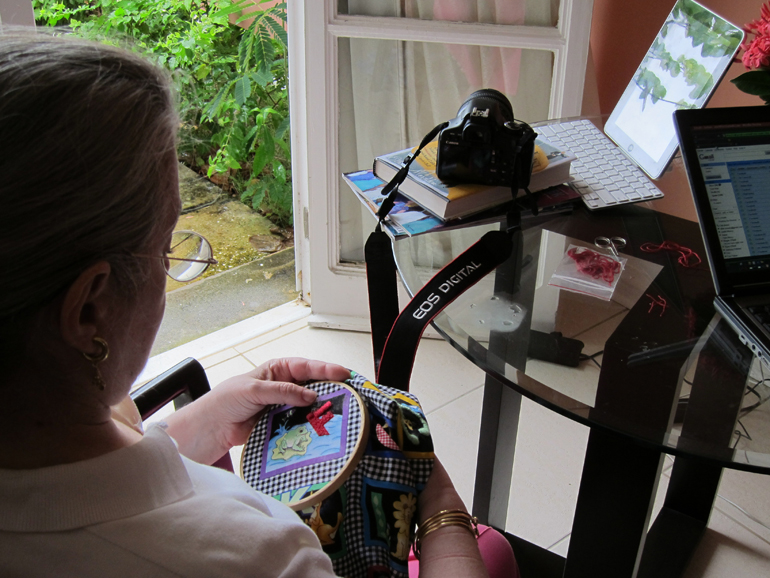Daily Office:
Tuesday, 30 November 2010
Tuesday, November 30th, 2010
Matins ¶ Kathleen Seelye’s excellent story about controversial celebrations of the sesquicentennial of the Civil War — there’s going to be a “fun” Secession Ball in Charleston — serves as a semi-official reminder that the aftermath of the War of Northern Aggression remains problematic at best. The concept of celebrating “soldiers’ right to defend their homes” without reference to the casus belli that made such defense necessary — secession from the Union, occasioned by the (likely) preclusion of slavery in the nation’s new territories — will strike Yankees as odd, if not positively hypocritical; but it would be well for northeastern liberals to spend the anniversary mulling over not the old enemy’s “bigotry” but the their own condescension toward the South, which, as you might expect if you bothered to think about it, has made many old Confederates feel bound to a republic that does not really welcome them. Ms Seelye refers to the conflict as the Civil War throughout her article. (NYT)
Lauds ¶ We haven’t seen either of the movies that Dan Callahan pitchforks in his “rich girl cinema” piece at The House Next Door, but we’re certainly going to see Sophia Coppola’s Somewhere, and Mr Callahan has sold us, however inadvertently, on Lina Dunham’s Tiny Furniture. We’re amused by Mr Callahan’s blithe assumption that rich people are not interesting (we take the opposite view), and we’re touched that, at the start of Ms Dunham’s movie, the critic “found it difficult to focus because Dunham looks and sounds and acts exactly like a girl I used to know in college, a rich girl who wrote poetry, plain-faced but magnetic, who always was taking up with pretty boys who treated her badly.” That kind of fresh and immediate personal association makes moviegoing sweet indeed.
Prime ¶ In an important essay that you will be glad that you read, “A Client Is Not a Counterparty,” The Epicurian Dealmaker draws a line between “proprietary trading” and “proprietary investing” that is clear enough to expose the perniciousness of the latter practice, which almost everyone who hasn’t gotten rich working at Goldman, Sachs (and the lesser firms of its ilk) agrees ought to be stopped.
Tierce ¶ There are two things to cherish about Susan Dominus’s nature tale, “The Mystery of the Red Bees of Red Hook.” The first is the given name of one of the beekeepers embroiled in the mystery, which turns out to be funny on a level that Ms Dominus either missed or was too kind to mark. The other is the unexpected reminiscence of St Augustine that floats up when Cerise Mayo laments her swarm’s “unnatural” fondness for the maraschino cherry syrup, loaded with Red Dye Nº 40, that the bees have discovered at a nearby factory. Like romanticisers of the savage from Montaigne’s day to our own, she is disappointed to learn that bees are no less fallen — er, driven by their appetite for instant gratification — than the children of Adam and Eve, whose lust for pleasure Augustine could explain only by means of his egregious invention, original sin. (NYT)
Sext ¶ If our friend George Snyder is not sitting by the phone waiting for a call from the producers of The A List, that’s because he has a rather more regal sense of what “A List” means. We only wish that Patrick Dennis were still around to correct George’s misapprehension that “being followed about New York City with multiple cameras while you smoke and drink and work out is hardly natural.” (1904)
Nones ¶ Jonah Goldberg dumps on President Obama, in the wake of the Wikileaks release, for relying on “engagement, dialogue, kumbaya” to solve international problems. More specifically, he blasts the president for failing to secure a favorable trade treaty with South Korea. There is a great deal of offstage saber-rattling in Mr Goldberg’s paragraphs, but no specific recommendations, not even an explicit demand that the president “get tough” with America’s antagonists. (LA Times; via Real Clear World)
Vespers ¶ Ben Hamilton makes a persuasive case for not treating rap lyrics as “high poetic art” — and he means no disrespect to either art form. His most forceful objection comes early on: “rap lyrics just do not work on the page.” We found this to be true of a little volume of Cole Porties verses, which in many case don’t even scan without musical support. Mr Hamilton also worries that the equation of Ice Cube and Wallace Stevens will work to the detriment of the latter. (The Millions)
Compline ¶ Don’t miss Robert McCrum’s account of a spirited talk with Margaret Atwood that conveys the impression that Ms Atwood is one of the great minds of our time, and only incidentally a poet and a novelist. She is the rare person whose interest in the environment has not pushed her into the abyss of misanthropy. “We shouldn’t be saying ‘Save the planet’; we should be saying: ‘Save viable conditions in which people can live’.”
¶ Our great friend, JRParis, is in town, and as always he is taking great photographs, several of which he has already posted. (Mnémoglyphes; [oldest permalink])Â
¶ “Crumpled City” maps. (GOOD)
¶ “Radiation Rings Hint Universe Was Recycled Over and Over” (Wired Science)















